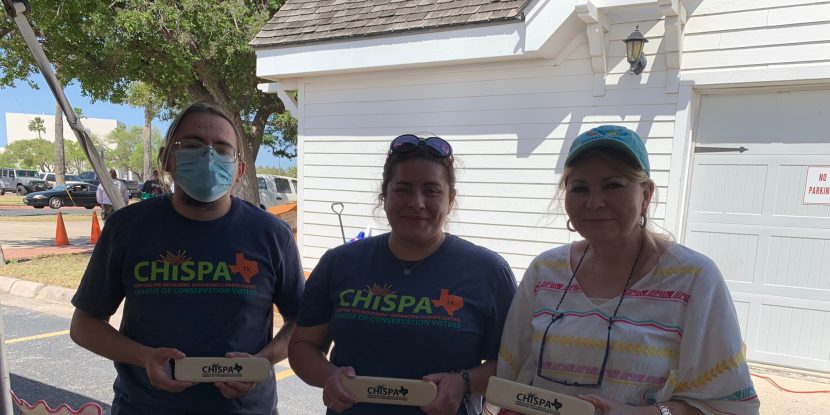Chispa Texas
Texas is an international capital for the fossil fuel industry and the largest GHG emitter in the U.S. Chispa Texas – one of six Chispa programs across the country – aims to elevate the voice and power of Latinx families to influence the environmental policies and decisions that affect their lives. Chispa Texas is based out of Corpus Christi which is over 60 percent Latinx and embodies the state’s enduring public health concerns and environmental effects of reliance on fossil fuels, from extraction to refining to transportation. The Port of Corpus Christi is the country’s largest crude oil exporter, with plans to expand its output by shipping Canadian and Bakken oil (to be delivered by pipelines now under construction). Low-income residents live under threat of air pollutants from the port operations and refineries.
This grant to Chispa Texas builds and elevates powerful grassroots leadership among Latinx and other communities of color by enabling them to advocate for climate, clean air, and clean energy solutions.
Photo Credit: Yvonne Landin


